|
“Poor Things” and “The Favourite” director Yorgos Lanthimos is known for being one of the most unique and creative filmmakers in Hollywood. His directing career, which began in his home country of Greece in 2001, has garnered attention as well as criticism and praise… but mostly praise. Over the years, his reputation of cleverly combining a quirky sensibility with equally strong themes and unusual content and characters has endeared him some of the best acting talent in Europe and America. And since 2018 between the release of “The Favourite” and “Poor Things,” Lanthimos’ films have racked up quite a few Oscar nominations and awards, confirming his unique talent and appeal.
Given that “Poor Things” was the darling of this latest award season (2024), including star Emma Stone winning for Best Actress in a Leading Role, one might expect Lanthimos to rest on his laurels… or at least rest. Instead he is riding on the heels of the acclaim and awards and has released “Kinds of Kindness.” The single movie is made up of a collection of three short-ish films (about an hour each) and done in the tone of fables and using the same ensemble of actors, headed up by the seamlessly talented Jesse Plemons and Emma Stone who also is the film’s producer. Initially the three stories seem disparate, but the more you get immersed in each one, the more themes and commonalities merge. The first follows Robert who tries to take back control of his own life after his boss and sometimes lover dictated every aspect of it. As such, the boss, played by Willem Dafoe, has gone as far as selecting Robert’s wife, house and determined that he should not have children. After ten years of such control, the boss insists on an especially odd and dangerous task of Robert. When he declines, the boss rejects Robert, leaving him to second guess himself and spiral. In the next story, Robert is a policeman who is devastated by the loss of his wife who is missing at sea while on a work excursion. When she returns, Robert is convinced it is actually not his wife. Soon the accusations and paranoia ensue. For the last installment, a couple/colleagues (Emma Stone and Jesse Plemons) are on a mission to find a specific candidate with special abilities to raise the dead and destined to become a spiritual leader for a cult-like following. While “Kinds of Kindness” is in keeping with Lanthimos’ quirky characters and creativity, it is not, however, in the same ilk has his latter works. “Kindness” is more so harkening to the filmmakers earlier projects, like “Dogtooth” or “The Killing of a Sacred Deer” where sophistication in style and presentation takes a backseat to darker sensibilities, and downright weird story lines and themes. This is not necessarily a bad thing, more of a warning to viewers more accustomed to and inclined towards the Lanthimos films of recent years. For some, it may be less delightful and more daunting, but conversely, “Kindness” might serve well to entreat fans who are unfamiliar with the first half of is repertoire to go back and experience the director’s entire cannon. I’m sure that is the hope, but the reality is that the majority of latter film fans probably will not crossover to his very dark comedy form. “Kindness” is definitely an acquired taste, with it more likely that many will find it outright weird and maybe even offensive or problematic regarding the portrayal of abuse and kink. What could have made it more palatable and engaging would have been if the characters spoke in normal patterns. Instead, the dialogue is delivered in stilted affectations throughout. What is the standout for the triptych is the talent, especially Plemons. True to form as a chameleon, he is a consummate character actor and “Kindness” solidifies him as the Phillip Seymour Hoffman of his time and one of the best around (I sense early Oscar buzz). Likewise, Dafoe and Stone are strong second leads to Plemons’ as the principal actor throughout. Other supporting actors and welcome new additions to the Lanthimos lineup are Hong Chau, Mamoudou Athie and Margaret Qualley. Love it or hate it; engaged or disdained, there are plenty aspects to appreciate about “Kinds of Kindness”- the mysterious elements of how the stories are conjoined, and the use of the same actors for varying roles, and each performances. “Kinds of Kindness” is the messy, but not necessarily tragic accident on the highway. You are the passenger-turned-gawker who can’t not look away.
0 Comments
Director Tran Anh Hung and his latest film are a match made in culinary and cinematic heaven. The opening scene, of "The Taste of Things," which doesn’t seem as long as it actually is - nearly 40 minutes long - is a luminously attractive parade of culinary delights. It is a period piece showing a couple/man and woman and two young females assisting with the gathering of vegetables, preparing various dishes, and carefully crafting and cooking each of several courses one at a time. Think of the opening of Ang Lee’s 1994 “Eat Drink Man Woman” but 25 minutes longer, more items and infinitely more tantalizing close up shots. Then it all gets served, lovingly consumed and painstakingly described.
All is set in an equally beautiful setting of a French countryside house and garden in 1889, with most of the movie taking place in a rustic, yet grand and charming kitchen brimming with copper pots and pans, a large wood-burning fireplace, a chunky wood table sitting on a stone floor and flanked by generous stoves, baskets with food and fresh cut flowers, and utensils on every surface. The tones throughout are dark and cozy. Director Ahn Hung has created a world of culinary delights. A feast for the eyes. Initially, the relationship between this gastronomic couple, Eugénie (Juliette Binoche) and Dodin (Benoît Magimel) is not known. Are they in a romantic relationship or just a professional one executing exemplary meals? Not too far into the story, it is realized that their’s is a special relationship that balances both- a passion for the culinary arts as well as a personal affection resulting from two decades of working together. It is their shared love of food and cooking that led to a deep romance usually only subtly portrayed. Eugenie is a humble, yet esteemed cook, and Dodin, a revered gourmand. Although Binoche and Magimel are the stars, and wonderfully so, the themes of gastronomy and love is at the center of this romantic drama. In true Ann Hung minimal style (“Scent of Green Papaya,” “Vertical Ray of the Sun”), aesthetics and ambiance are more prominent than words and dialogue. “The Taste of Things,” based on the French novel “The Passionate Epicure” (1920 by Marcel Rouff), is a unique love story about love itself and the love of food. I recently had a chance to interview the director about his latest film. Here is our discussion: Q: Your films display a strong visual sensibility where aesthetics and overall tone are seemingly more important than traditional scripts heavy with dialogue. Would you agree with that observation and if so, was that something you learned or did it come naturally? A: It did come naturally to me, probably because I’m attracted to visual arts. In movies I don’t try to get something that looks real, something in everyday life. I prefer to give an expression of it. By doing so, the beauty came naturally. I always want audiences to come out of the theater with a feeling of beauty. Q: You’ve always been okay with using dialogue sparingly? A: In talking about words, I think it’s good to balance dialogue with a lot of silence. That way when you hear words, it’s more precious. This combined with the visual aspect, make it more vivid. Q: How did food and cooking come to be one of the main aspects of the film, along with a longterm relationship? Was part of it inspired by your wife, actor, Tran Nu Yen Khe’s (“Vertical Ray of the Sun”) love of food and overall design? A: In one way or another, my wife and I have worked together with my film projects for almost 30 years, so we know each other and how to collaborate very well. She has done the costumes for some films, the production design for others as well as the art direction for everything, including Taste of Things. The look and beauty of it is in large part thanks to her. When I wanted to make a movie about food, I found a particular book, but the story wasn’t good. Given that, I decided to tell a different story. This story is inspired by my relationship with my wife. Because of my age I wanted to make a movie about marital, that kind of love that lasts a long time. The challenge was how to make a movie about love, with a sense of harmony that would not be boring, Q: How exactly is gastronomy central to the story and the featured relationship? A: Food in general is one source of centrality in our lives, along with love, so it was important to have a film that combined that to find a balance. I knew the audience needed to actually see people making the craft of gastronomy with real vegetables and real meat, etc. Anh Hung relayed that because of the complexity of the cooking scenes he had hoped to have adequate training time for the actors with a chef. He specifically planned for one week of training, but due to both Binoche’s and Magimel’s work schedules, they were only available for half a day of training. That could have been daunting, but it actually ended up being enough because the perform at such high levels no matter what the roles or tasks. Q: With the art and craft of gastronomy being so central to the film, with the actors actually prepping, creating and plating, was it particularly challenging to cast and direct actors who had no prior culinary experience, per se, and then end up with little time to train? A: Well, firstly, although they have no professional experience with food, like all of us they do still cook in their everyday lives. This is especially true for Benoit because he has a particular passion for cooking. The other thing is that they are great professionals with a lot of experience in varying roles. Case in point, Benoît had played a surgeon once and realized he could draw upon his skills he learned from that role to this one. Anh Hung explained that the incredibly gorgeous and historically accurate food created was born of a collaboration with a food historian during the script writing process. Once they settled on items and tested them out, everything was run by the production’s food advisor who made minor adjustments to the menu. Afterwards and throughout the entirety of the shoot, Binoche executed the menu to perfection. Tran confirmed that there were no cut aways to someone else slicing and dicing or cooking. Q: You are no stranger to working with talented actors, food and lush aesthetics, but I’m especially impressed how you write and direct projects of different countries and languages, including Vietnamese, Japanese and French. Given your background, does Vietnamese come most naturally and easily as far as language and culture? Is French more of a challenge? A: Actually, my French is better than my Vietnamese. Switching languages for a script and directing comes very natural to me, and when I come to France to direct, I have no problem getting a sense of the culture and conveying it. I like French culture. Also France, unlike some other European languages and cultures has a subtlety to it that coincides with my Vietnamese nature. The downplayed expressions of love between Eugénie and Dodin is something I can relate to and is very French. There is great love there, but they often do keep their distance to focus on the tasks at hand. And sometimes I mix cultures in my mind and writing. When the two characters in this film discuss the seasons as it connects to their personal preferences and their relationship, that is actually very Japanese, but put in this context, it sounds very French and it works. Q: Speaking of very French, how did you come to the casting? Not that Binoche wouldn’t be the top of any director’s wish list. A: Although Juliette and I have never worked together until now, we have known one another for a long time, over 20 years. We’ve always wanted to collaborate and when I started writing this script, I knew this would be a great opportunity. She was there from the beginning and she stayed event when we hit some difficulties. Everything with her was quite amazing because when you frame her, everything becomes strong. Likewise, Benoit is amazing too and I’m grateful to have both of them for this project. When you see the movie, it’s obvious that there was a special connection between not only Binoche and Magimel, who in the late 90s were a couple in real life and share a daughter, but also between the lead actors and their writer/director. If ever there was a passion project, this is it. “Taste of Things” was born out of love, made from love and dedicated to the love between Tran and his wife. While some couples are scrambling for last minute tokens of their affection for their loved ones this Valentine’s Day, for director Ann Hung can lovingly point his wife to this deliciously gorgeous film now and forever. For the rest of us, we can watch “The Taste of Things” together and experience the food and feel the love. Born in Vietnam and living in France for many years since 1975, Tran Anh Hung studied filmmaking in Paris at l’École Nationale Louis Lumière. His directorial debut, “The Scent of Green Papaya” (1992) won him a reputation internationally by winning Camera d’Or and the Prix de la Jeunesse at the 46th Cannes Film Festival. The film was also nominated for the Academy Award for Best Foreign Language Film. Director/Writer: Tran Anh Hung Stars: Juliette Binoche, Benoit Magimel, Emmanuel Salinger Country: France Language: French Run Time: 2 hours 15 min MPAA Rating: PG-13 Production Company: IFC Films Trailer: https://www.youtube.com/watch?v=cKKCGtoIOVY “The Teachers’ Lounge” is Germany’s submission for Best International Feature Film to the 2024 Academy Awards, and just a few minutes into it, it’s easy to understand why. The film uses a public school as a microcosm for society, with grade school teacher Carla Novak (Leonie Benesche) at the center. Although she is new-ish to teaching, she is confident and idealistic and seemingly well-liked by her middle grade students as well as her colleagues. That all changes when students in her classroom are suspected of theft by other teachers, and she suspects a colleague of stealing money from her coat pocket.
During the initial scene of her students being unofficially investigated for a theft, Carla is clearly uncomfortable with the accusations, probing and profiling taking place. She questions the ethical and legal nature of the investigation. She sympathizes with the students’ feelings of being violated and a couple of them maybe even unfairly profiled. Despite her unease, she is instructed by the principal and teacher involved to accept their decision to investigate and their methods. Not long afterwards, she realizes she has been the victim of a theft in the teachers’ lounge. In an attempt to catch them in action, Carla purposefully puts money in her jacket pocket, leaves it at her seat, then sets up her computer camera. The thief takes the bait, but only his or hers torso is captured on camera wearing a distinctive and colorful blouse. With evidence in hand, she approaches who she believes is the culprit, one of the support staff in the school office. The secretary vehemently denies the accusation. Soon after, a series of heated debates and unfortunate events are unleashed, with the secretary’s son, a student at the school who is often the subject of bullying, is swept up in the drama. He lashes out at the teacher in defense of himself and his mother. Others question if the mother and son are not being singled out because of their ethnicity and economic status. This is the very thing that Carla questioned when certain students were targeted in her classroom. Now she herself is accused of what she had earlier suspected. Carla, once appreciated and admired; cool and calm, is getting it from all sides. There is no place in the school- her classroom, the teachers’ lounge, common areas- where she is not either the victim of accusations or brought into decisive matters between others. Not surprisingly, she begins to second guess herself, the choices she made and the allegations she made. Because the movie is done entirely from Carla’s point of view and she is well-meaning and likable, the audience is sympathetic to her and what becomes her plight of digging a deeper hole as she tries to navigate what’s right and wrong. She is the teacher you would want for your children or would have wanted for yourself. You feel the chaos swirling around and want to defend and protect her. Benesch is magnificent as the protagonist. She morphs into the role, believable and captivating. She makes us believe that Carla is us in our everyday battles no matter how small or large; it’s individuals grappling with when to engage in political or community issues, and when to retreat. Through it all, filmmaker İlker Çatak (“White Ribbon”) impressively navigates themes of power, racism, social justice and student’s rights. There is something both very reflective of German society while also intensely universal. Director: İlker Çatak Writers: İlker Çatak and Johannes Duncker Stars: Leonie Benesche, Eva Lobau, Leonard Stettnisch Language: German MPAA Rating: PG-13 Run Time: 1 hour 38 minutes After nearly two years of a global pandemic that deeply impacted our lives, we have collectively dug ourselves out, for the most part while also knowing on some level we will never be the same. The signs of the time, pre and post-pandemic were reflected in the movies and throughout the movie industry. All that to say, movies are back, baby! And some movies in 2023 actually got audience off of the couch and into theaters- thank you- Barbenheimer- although on some level it's clear that sooner-than-normal or straight-to -treaming may for a very long time, if not forever, be embedded in the system... especially for smaller films.
2023 will also be synonymous with the WGA and SAG strikes going well over 100 days. While it was debilitating for the industry, especially the members, a few significant releases got out just before the strikes, and even more once an agreement was reached. The fierce union negotiators managed to strike a deal with the studios, just in time release and promote the end-of-the-year Oscar contending movies. Here is my annual "Top Ten" Movies of 2023. These are in order of and a loving blending of my fav/best from #1 to #10. Hooray for Hollywood and go support in-theater movies when you can. 'Past Lives'- This is a great example of a pitch perfect film and of a debut filmmaker not over-reaching. This film is a wonderful blend of drama and little bit of romance while navigating themes of identity and culture. Go here for my full review - https://www.paulafarmer.com/film-blog/past-lives-film-review 'Monster'- This movie about perspective and context will have you pondering the themes and question for quite awhile after experiencing it. For my full review, go here - https://www.paulafarmer.com/film-blog/monster-movie-review 'Poor Things'- This is as quirky, creative and wild, yet substantive as any of the director Yorgos Lanthimos' earlier works ('The Favourite,' 'The Lobster'), if not more so. 'The Holdovers'- Although this is not necessarily one of Alexander Payne's masterpieces, like 'Sideways' and 'About Schmidt,' it is a quintessential Payne movie hitting all the hallmarks he is known for, like attention to detail, subtlety, perfect balance of drama and humor. It is both moving and delightful, and a must see for any fan of the filmmaker. The three main actors, Paul Giamatti, D'avine Joy Randolph and Dominic Sessa, give outstanding and believable performances. 'American Fiction' - Go to my full review here - https://www.paulafarmer.com/film-blog/american-fiction-review Who is the monster in any highly-charged random scenario? In the case of Kore-eda Hirokazu's latest film, 'Monster,' it could be any one of us or none of us. Is it the bully at school or the new teacher who disciplines him? Maybe it’s the stoic school principal or an abusive single parent. Who can judge and who gets to exact revenge? 'Monster' ask these questions and more after tempers flare in a grade school class setting and an irrevocable series of events are unleashed. He explores how one incident can impact so many people’s lives, the power of perspective and the importance of context.
When a common classroom clash between two students- Yori and Minato- breaks out at a school in a small lakeside town, Minato is physically and emotionally impacted. By whom, why and how is not necessarily clear. Minato’s mother is convinced her son was hit by the disciplining teacher and vehemently takes the matter up with the principal, the teacher and other officials. She is dissatisfied with their initial offer of an official apology, and accuses the principal of being cold hearted and inhumane. To her, more must be done despite the revelation that the students, along with the teacher have differing claims about what exactly happened. Similar situations of classroom eruptions is probably replicated throughout schools everywhere everyday. This particular seemingly benign incident gradually mushrooms into so much more. Soon, the school board, the community and the media are involved, armed with opinions, criticisms and judgements. So sets the film’s premise which launches into a cascade of brilliantly executed points of view. As a viewer, you are guided into each character’s world outside of the specific incident, as well as getting a glimpse inside their personal trauma, drama and sometimes closely held beliefs and secrets. As such, you too make assumptions and think you’ve worked things out as far as who’s right and wrong; who is the victim and who are the perpetrators. But then a twist, a turn presenting an ever so slightly shift in perspective… although the characters remain the same. Every actor, every performance is utterly moving and effective, especially the two young leads, but the film’s stars are the editing by director, Kore-eda and the writing by Yuki Sakamoto. To take the viewers almost seamlessly from one point of view to the next without announcing the change and without confusing or losing us, is no small feat, and in the hands of a lesser talent, could have been a mind boggling disaster. Instead, “Monster,” which is drawing comparisons to Kurwosawa's "Rashomon," is tender and complex; smart and nuanced without being pretentious. As it unfolds, it gently nudges audience active participation by mentally putting together the cinematic puzzle laid out before them and navigate social constructs. “Monster” is not only one of the best movies of this year, but one of the best movies period. Director Kore-eda Hirokazu, known for previously critically acclaimed films “Shoplifters” and “The Brokers,” has just delivered his masterpiece. “American Fiction” is a hilarious must-see movie that delivers as many laughs as it does moments of poignancy. Jeffery Wright, most known as a prolific actor usually in supporting roles, is refreshingly the lead here. He stars as Monk, a California-based frustrated novelists-turned even more frustrated English professor. His books are good, not popular or profitable. While attending a writing conference in his hometown of Boston, he is painfully reminded of what he sees as the marginalized position of Black authors within literary circles. He is equal parts fed up with the publishing industry’s promotion of and its profits from books that perpetrate negative stereotypes. Monk is plagued with the nagging feeling that in order for him to achieve any financial success or professional notoriety, he must submit to the pervasive expectations- Black authors can only write Black stories full of trauma and drama.
All this angst leads to what he thought would be exacting revenge on the publishing industry. As such, he submits to Arthur, his agent (John Ortiz) a bogus, quickly thrown together mediocre novel brimming with what he considers blood curdling tropes- deadbeat dads, rappers and crack. Initially, Arthur was mortified and quick to discourage Monk from trying to make a social statement in the form of what could only be a failed experiment that could hurt his already lackluster writing career. But Monk is determined to go all in at rubbing their noses in their unfair system. He and Arthur agree to disagree and compromise by creating a pseudonym and fugitive, bad ass persona. To both their surprise and his agents delight, the manuscript illicit swift responses from the publishing world: Instead of outrage, a bidding war ensues. The white establishment not only does not register Monk’s intended point, but the winning publisher loves the book, fast tracks it to print and secures a movie deal. For better or worse, Monk and his alter ego- Stagg R. Leigh- is finally poised for success. All the while, Monk must maintain his new found literary persona and keep the publishing windfall a secret from everyone. Normally, Monk is known to maintain physical and emotional distance from his family, but while in town and his secret professional windfall is quickly unfolding, he is thrust into major family issues he cannot avoid. He finds himself in the caregiving role to his mother ( Leslie Uggams) that in times past was undertaken by his sister (Tracee Ellis Ross). Complicated by is mother’s declining health is the lack of support from his brother (Sterling K. Brown) in the matter, and a seemingly false start to a new romance. The family aspect of the movie wonderfully offer additional humor to the already hilarious take on the book world and society’s obsessions with stereotypes. Refreshingly and commendably Monk’s family and romance woes usher in a layer of complexity and humanity that is unexpected. Jeffrey Wright, long known for heavy-hitting dramatic roles like “Basquiat,” “Angels in America,” “The Ides of March,” just to name a very few, has of late been showcasing his comedic chops in movies such as “Game Night” and Wes Anderson films, like “French Dispatch” and “Asteroid City,” and we’re all better off for it. With “American Fiction” he wonderfully heads up this ensemble cast that includes Tracee Ellis Ross, Sterling K. Brown, John Ortiz and Erika Alexander. Wright does multiple one-on-one scenes with each of these actors, and you would be hard pressed to pick a favorite with each landing pitch perfect comedic and sometimes tender exchanges. “American Fiction” would work as a solidly good comedy, If there were only the one story/plot of Monk’s reluctant turn of events in his career and the circumstances leading up to it. The script-writing and cast are strong enough to deliver on the comedy front alone. This includes Sintara Golden (Issa Rae) as Monk’s author nemesis who is seemingly pandering to or victim of the narrow-minded establishment. The fact that debut writer-director Cord Jefferson, along with co-writer Percival Everett layered in a tender subplot of familial relations, love, loss and identity, is a bonus that takes the movie from just entertaining to exceptional. 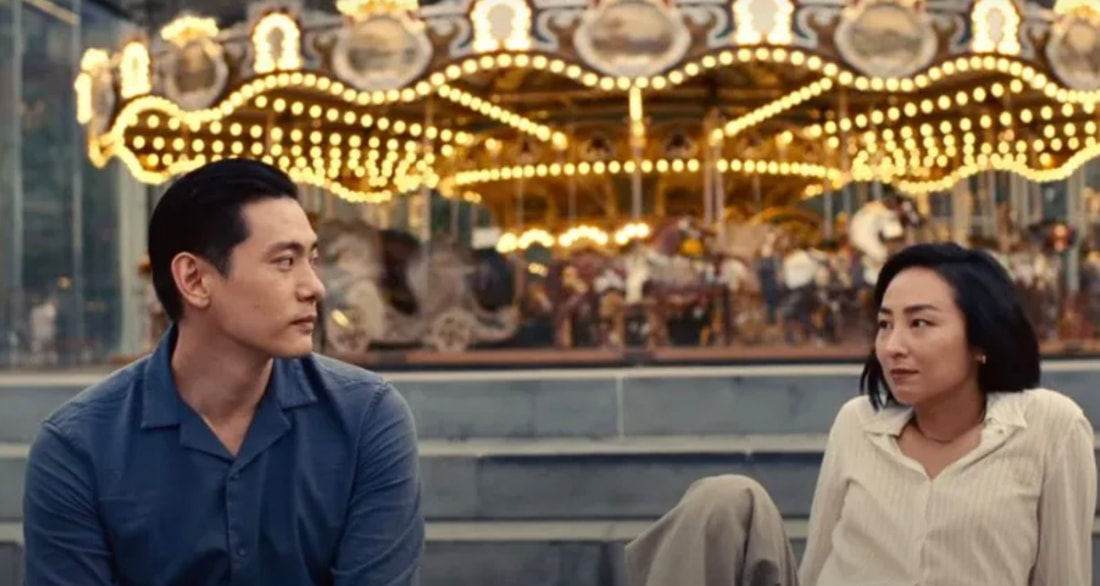 If you are looking for a sweeping, over-the-top romantic movie, this is not for you. Likewise, if you are looking for a predictable, jovial rom-com, again, this film is not for you. But if you are open to a quiet, intelligent, pitch-perfect romantic drama, then run, do not walk to see “Past Lives” by new director, Celine Song. This unconventional love story starts 24 years ago when then twelve-year-olds Nora (Greta Lee) and Hae Sung (Teo Yoo) spark a friendship and puppy love while at school in Seoul, South Korea. Not long after Nora admits her crush on Hae Sung to her mother, she informs him that she and her family will be immigrating to Canada. His sadness at the news is palpable, and any future prospects he had for them are seemingly lost to her future abroad. But fate steps in when twelve years later as post-graduate students embarking on their careers, the two reconnect, via online.
Their initial brief Facebook messaging spark an interest to truly get to know their now adult selves, leading to frequent Skype (pre-Zoom) video conversations. Since by then, Nora is living as an aspiring playwright in New York and Have Sung a student/intern still in Korea, they have to navigate their video meetups across major time zone differences. Although no particular romance or love is declared through these calls, a strong bond of friendship is secured and they both clearly relish these moments together. So much so that the career driven Nora realizes that since they would not be able to connect in-person anytime soon because of their schedules, she questions the practicality of maintaining a long distance romance of sorts. She begins to see it as more of a distraction from her goals than emotionally fulfilling. To both their anguish, she puts their connection on indefinite pause. The love story becomes a love triangle of sorts when Nora and Hae Sung are in their mid-thirties, still living on different continents and have not been in contact since that last call about ten years earlier. Hae Sung who is grappling with a recent break up from his fiancé and a lackluster job in his field, decides to navigate his old feelings for Nora by means of a trip to New York. She tries to explain her friend’s pending visit to Arthur, her Jewish-American husband of several years (John Magaro). While she assumes the trip is purely coincidental, her husband suspects otherwise of Hae Sung. Being the open minded and supportive husband, he encourages their reconnection, declaring an aversion to being thought of as “the evil white American husband standing in the way of destiny.” From a writing perspective and cinematically, everything and every scene leading up to their 20 plus-year reunion has been wholly engaging and fulfilling. This includes the childhood sweetheart scenes in Korea, the family’s immigration to Canada, Nora’s first encounter with her now husband when they met at a writers’ retreat soon after she cut communication with Hae Sung, and most notably the sequence depicting Hae Sung and Nora’s reconnection, via Skype. This particular sequence is lengthy but never feels too long or labored. It is pivotal to both characters’ sense of place, identity, culture and development. It is a window into their personalities, for each other and the audience. Here one gets a true sense of Nora’s confident, creative, ambitious, yet fun personality, and Hae Sung as an undeniably shy, reserved and tentative old soul. To be sure, this would be a tricky sequence for the most seasoned of directors, but wildly impressive for Song in her directorial debut in collaboration with her editor, Keith Fraase. All those scenes anticipate their in-real-life connection. It is here they meet up at the intersection of the past and present while confronting their futures. All those “what if” questions get extracted from their hearts and minds and are laid out before each other. What if you/Nora had stayed or moved back to South Korea? What if we had gotten together twelve years earlier and maintained a relationship? What if you didn’t need a green card and married Arthur? What if we had gotten married and had children? Not only are Hae Sung and Nora thinking and asking the questions, but Arthur too ponders his place in Nora’s life and culture. Speaking of which, if those thoughts of love, love loss and one’s past and present life weren’t enough to explore, there is an additional theme of culture and history that adds an incredible layer of interest to the story. After so many years in North America, Nora is perplexed by her lack of “Korean-ness” by comparison to her childhood friend. This a great example of double consciousness as coined by W.E.B Dubois and often attributed to Black people in America and immigrants as well. "Past Lives" is a full and layered film posing as minimal. For that, coupled with other noteworthy elements, like keen and rich photography, and great acting- most notably by Greta Lee in her first leading role- it is quite simply, one of this year’s best films. It is everything a small, independent film should be and what any new director should aspire for. It is poignant without being sappy; authentic but not raw; it is complex, yet accessible and relatable. “Past Lives” is breathtaking, leaving you speechless in the most wonderful way. Just as it was looking like there was nothing to look forward to for summer movie releases other than Disney animation remakes and more Marvel madness, we get a delightful delivery from France. “Rise” (“En Corps”) by filmmaker Cedric Kaplisch (“L'Auberge Espagnole,” “Paris,” “Back to Burgundy”) is a heartfelt and entertaining drama intertwined with just the right amount of humor and imbued with themes of second chances, the life affirming nature of art. Although dance is at its core and a prima ballerina-turned contemporary dancer drives the story, you do not have to particularly like dance to appreciate the story and enjoy this movie.
After 26-year-old ballet dancer Élise witnesses her boyfriend cheating on her just prior to going on stage, she sustains an injury during the performance and is told she will probably never be able to dance again. Between her heartache and the devastating medical news, she loses her purpose. With the help of friends, she finds other temporary work with a caterer that takes her to an artists retreat and rehearsal facility in Brittany. While there, she meets a company of modern dancers. Watching the company’s rehearsal, initially triggers sadness over the seemingly loss of her career and passion, but through the encouragement of these new friends, Elise realizes she can pivot to a new, more forgiving and inclusive form of dance. As a result, the new experiences and friendships rekindle the fire in her. The differences between the dance forms- classical ballet and modern dance- serve not only as an aesthetically engaging film element, but also as metaphor for life and cliches such as ‘When life gives you lemons…’ and ‘When one door closes, a window opens,’ but probably most apt is this actual line from the movie when Elise is given wise counsel from a new friend: “Make the most of all the lives that life offers.” This message, of course, is specific to Elise, but is a universal theme that people/viewers of all ages can relate to. Although there is not a lot of dialogue throughout Rise, what is there is very well placed and enriched with dance sequences that give the movie an undeniable beauty and energy. Kaplisch has long been known as an actors director, assembling an eclectic cast of characters and casting pitch perfectly for each part. In that, “Rise” is in keeping with his trademark, delivering a talented cast, many of whom are more professional dancers than actors. While Rise is an ensemble project, most noteworthy is the luminous performance of the film’s protagonist, Marion Barbeau as Elise. She is Première Danseuse from the famous Paris Opera Ballet company. “Rise” is her debut as an actress. She joins the ranks of Marilou Berry, a young opera singer who turned in an impressive debut for “Look at Me” (“Comme Une Image”) in 2004, and ballet star Leslie Browne in “The Turning Point” from 1977. Unlike the latter two, hopefully we will see more of Miss Barbeau on the big screen. But this is not to take anything away from the supporting cast of talented dancers and actors. This includes Hofesh Shechter, dancer, choreograph and composer, plays his own role in the movie. Most of the music comes from one of his shows; Francois Civil who plays the love struck masseuse; Denis Podalydes, Elise’s emotionally detached lawyer father who through much of the movie bemoans his daughter’s artistic career path. Other significant contributors to the film’s elevation, no pun intended, is the wholly engaging dance sequences, impeccable soundtrack, and often dazzling cinematography. Where many directors have their best work behind them, Kaplisch is actually getting better with age and every subsequent film. This feel good dance movie, with a message may be his best movie yet, and most definitely his best looking. Director: Cédric Klapisch Writers: Santiago Amigorena, Cédric Klapisch Stars: Marion Barbeau, Hofesh Shechter, Denis Podalydès, Muriel Robin, Pio Marmai Running Time:1h 57m Rating: Not rated Language: French, with English subtitles Production Company: Studio Canal and Blue Fox Entertainment Trailer: https://www.studiocanal.com/title/rise-2022/ Photo Credit - Netflix
In the vast vortex of TV series and movies of all genres that is Netflix, it can be challenging at times to glean out a gem. It never ceases to amaze me that despite all the content out there, how often there can be seemingly nothing to watch. If you’re anything like I am there have been plenty of nights of scrolling through rows and rows of options only to repeat the mantra, “How is it possible I can’t find anything?!” I was prepared for more of the same recently, but the algorithm gods were in my favor and a new release from Italy was discovered. Still Time (Era Ora) by Writer/Director Alessandro Aronadio is a time-jumping (not traveling) dramedy that gets poignant messaging across while deftly interjecting humor throughout. The movie starts at a New Year’s Eve party with the protagonist, Dante (Edoardo Leo) encountering what will be the new love of his life, Alice (Barbara Ronchi), under unusual and funny circumstances. Not long after, Alice has clearly moved in with Dante and it is his birthday. As such, Alice begins what will be an annual ritual of a pancake birthday breakfast, and then she asks him to commit to returning home at a normal time. Dante ridiculously rushes through his breakfast, claiming to have a work deadline, but promises an early return. Unbeknownst to him, Alice has a surprise party lying in wait. Unbeknownst to her, Dante will return much later than sooner after a rigorous work schedule at the office and running a few errands. This sequence not only gives insight into their very different personalities- she is an adorable, fun-loving creative woman, and he is a workaholic with no sense of work/life balance or prioritizing the things that should matter most- but also into their new love and relationship. The viewers are hooked on them as individuals and as a couple.This also sets up the reoccurring theme of time loops. Shortly before a scene’s conclusion, Dante and the audience think a normal few hours has passed, like sleeping overnight and waking up the next morning, but in fact another year or two has gone by. It is his birthday as demarkation of time. Instead of Dante thinking he will be waking up to the day after his surprise party, he is instead faced with a very pregnant Alice. The next scene/day their baby is a year older and it's another birthday. Making things more frustrating to him, is he is the only one seemingly experiencing this. These type of jumps occur many times signifying Dante’s loss of time and lack of participation in his life and the lives of those he loves most, including a health crisis for one of his best friends, changes in his aging father. One of the most moving, yet funny examples of this is the ongoing growth of his daughter, whose first few years he has obviously participated little in. This is evidenced by the ongoing joke of him forgetting her unusual name (in honor of a Lord of the Rings movie character) and not understanding why Alice selected it. Despite the movie’s familiar premise of time loops and the reflection of life on what matters most, it is done so in a truly unique way that keeps the audience surprised, laughing and wholly engaged. And kudos to director Aronadio for usurping expectations at the end. Although Dante is a workaholic and a clearly flawed character, he is also authentically charming and undeniably delightful. He is not set up as a cliched arrogant suit just trying to climb the corporate ladder. He seems to genuinely think this is what he has to do to maintain. That said, he is missing out, literally, on life and learns a hefty lesson. The fact that it takes maybe a few too many time jumps is unfortunate for Dante, and the only minor flaw of the film. It came very close to being too repetitious and overselling the life lesson. Fortunately, with clever writing and execution, along with delightful performances by Leo and Ronchi as well as the small supporting cast, Still Time delivers as being one of the best movies you didn’t know you wanted to see and an expected best of the year. Click Here for Movie Trailer The third time is the charm applies to my latest revision of my Best Of/Fav List of 2022 films. As I write this, it's just a few hours away from the Oscar Awards ceremony. While this is not reflective of what I think will necessarily win, I do believe my #1 and #2 selections are close contenders for the big prize, with Everything Everywhere All at Once coming out on top for probably all the "top categories," including Best Picture.
Not surprising, there are several on my list that are not in the running, and even some that most people haven't seen and/or haven't had opportunity to see yet. That includes The Grab, a riveting and important documentary that has yet to get a distributor and is only on the film festival circuit. I viewed it, like Decision to Leave, Argentina 1985 and Boy From Heaven, at the Mill Valley Film Festival. Despite their lack of awards contention or even distribution, I think they are worthy of my list and stand as the best I had the opportunity to see in 2022. I also strongly urge you to seek these films out, along with Triangle of Sadness (one of the best dark comedies ever!), which is now available on one or two streaming platforms, at first opportunity. In the meantime, enjoy what should be a relatively uneventful Oscars show, especially compared to last year's program, and with what I predict will be few surprises. |
AuthorPaula Farmer. Archives
June 2024
Film |




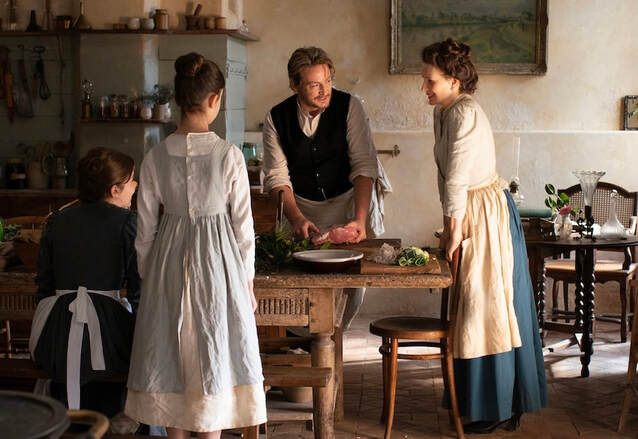
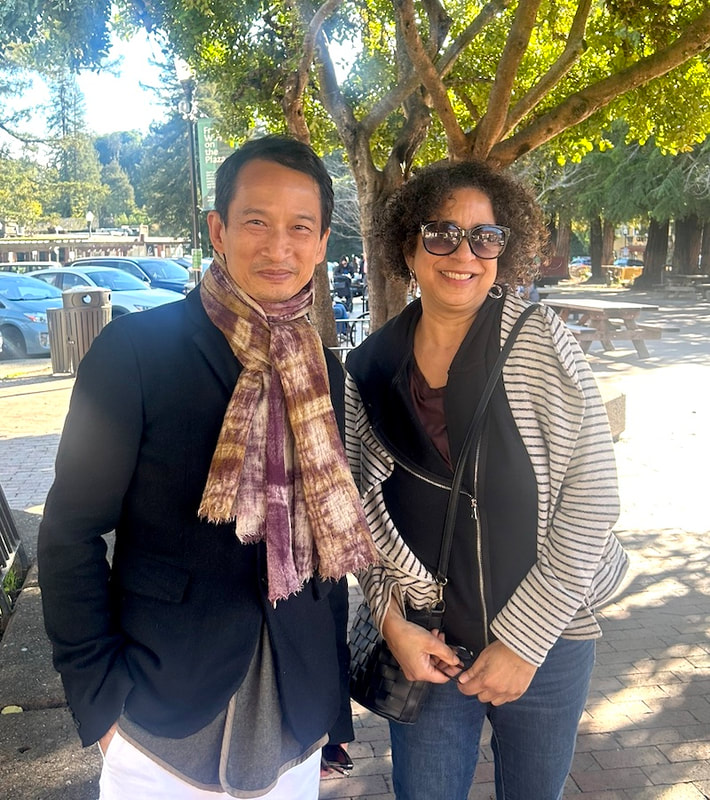
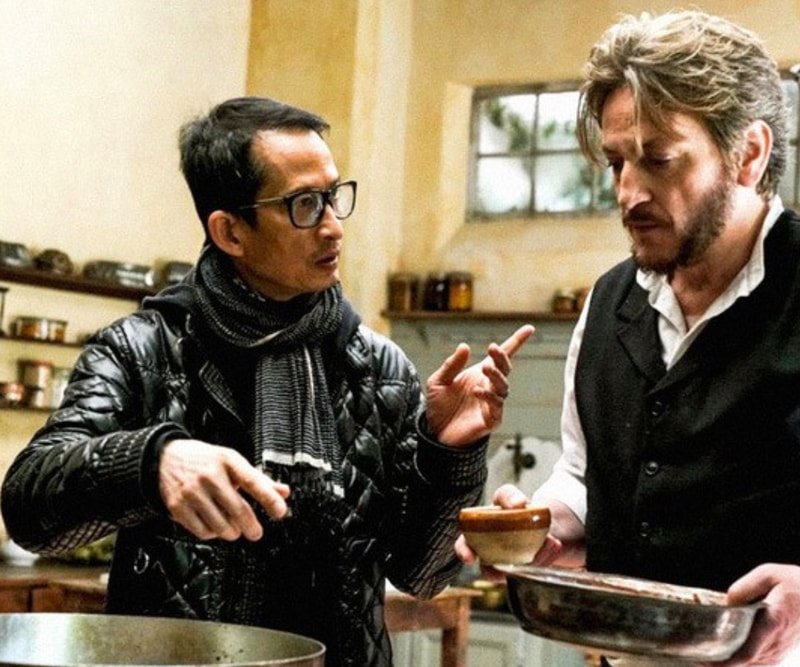
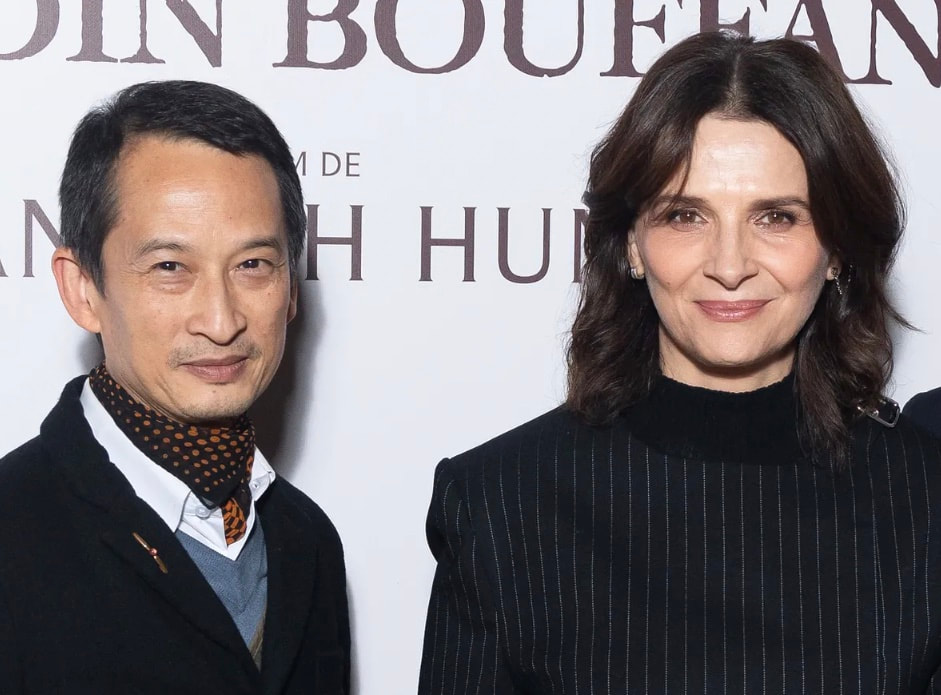
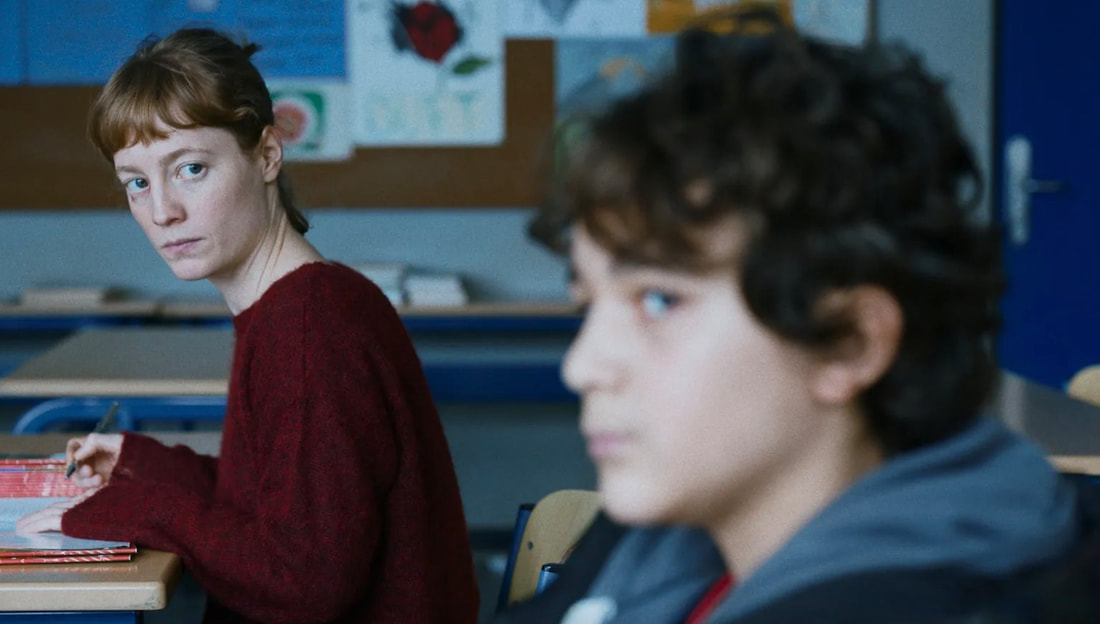
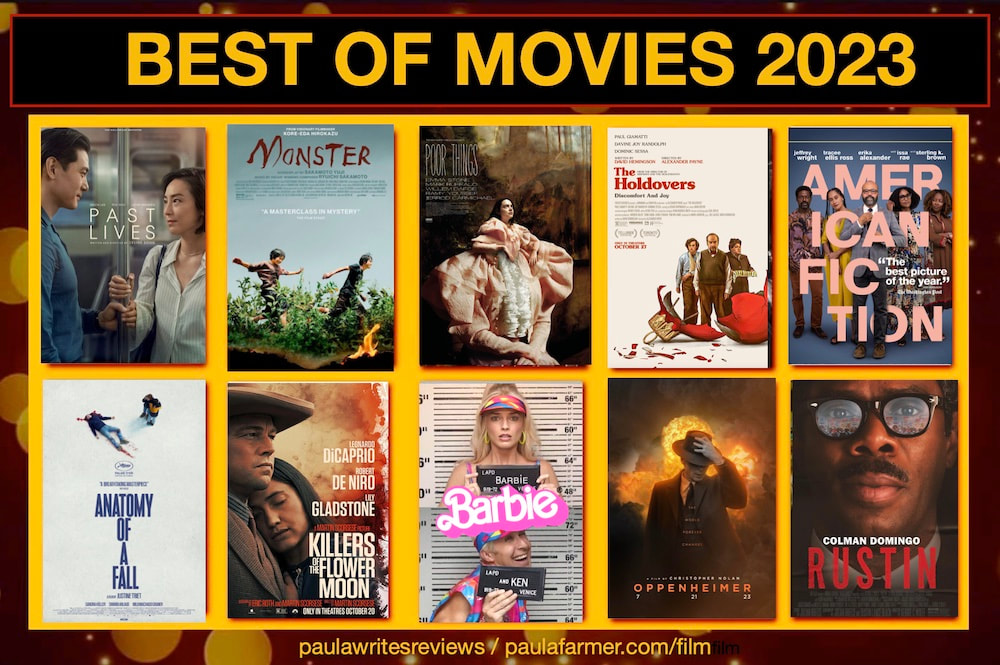
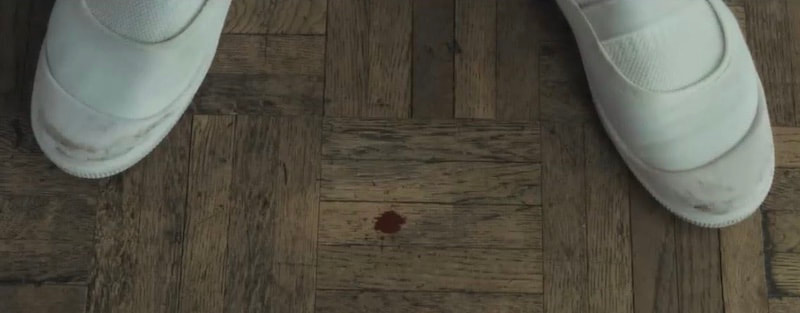
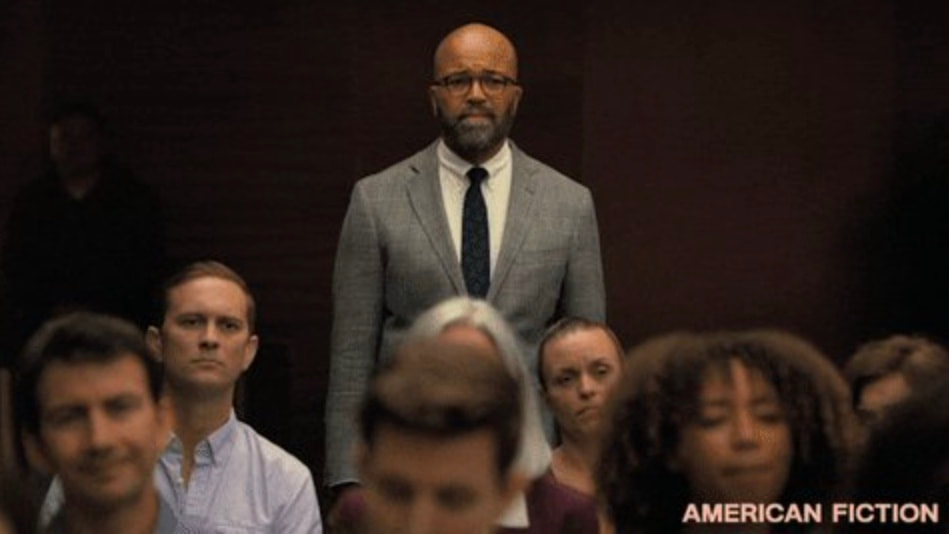
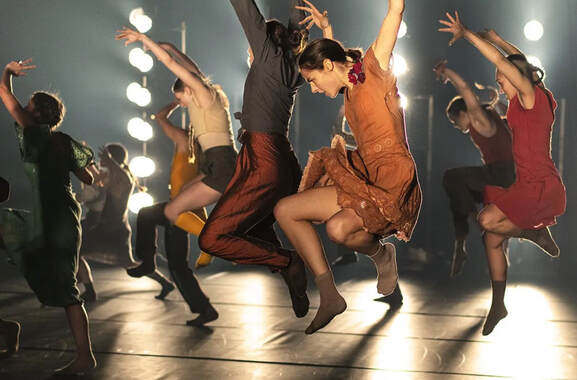
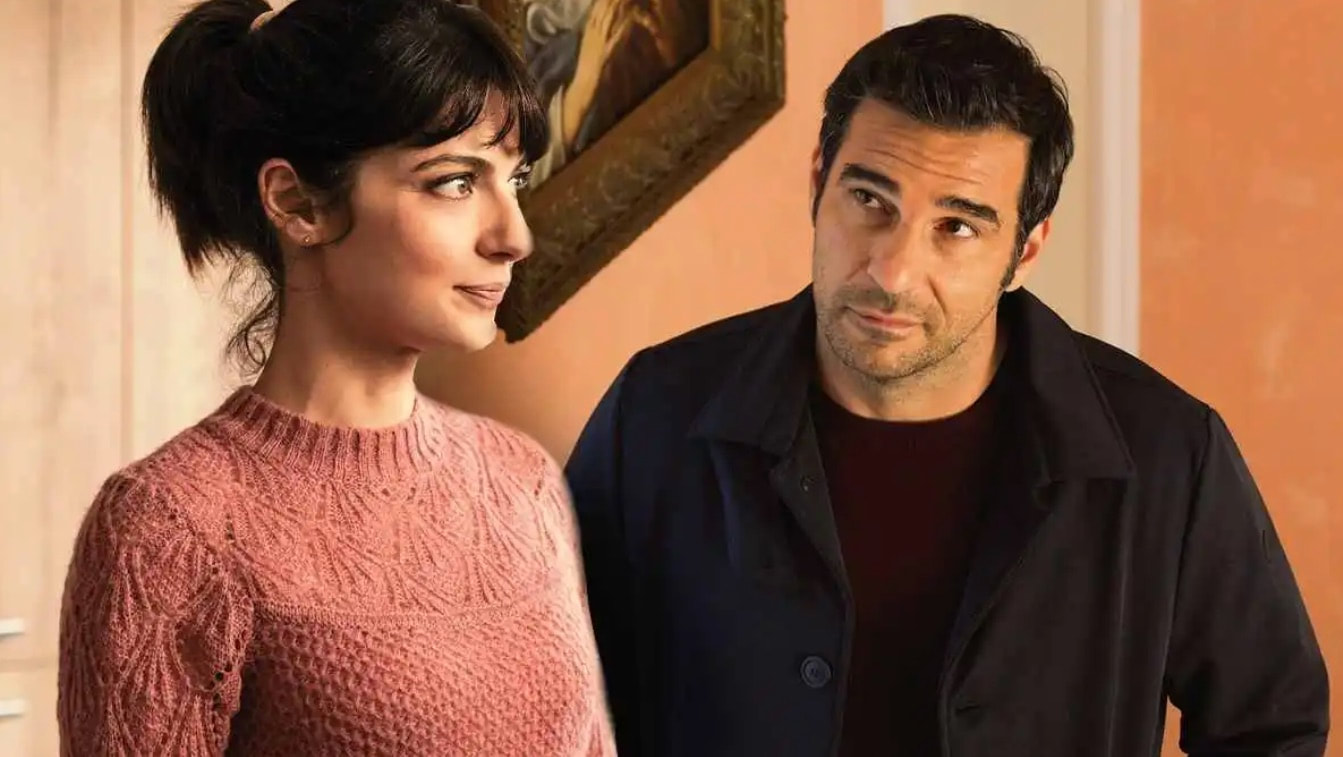
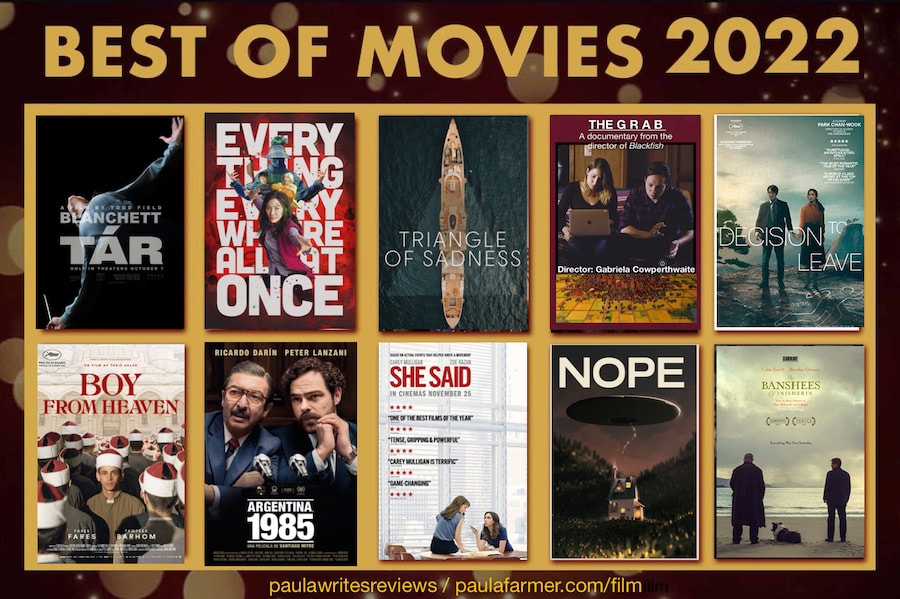
 RSS Feed
RSS Feed